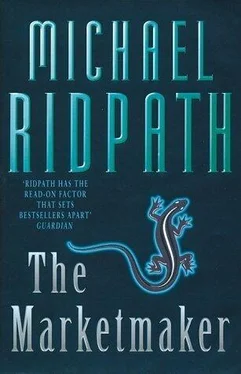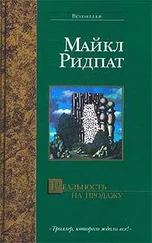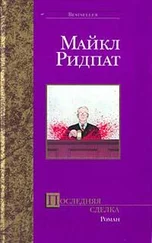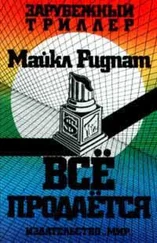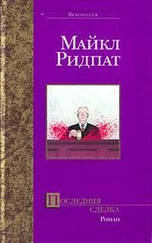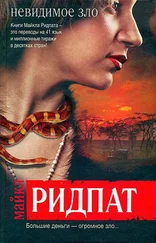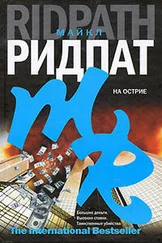Ricardo was working the phones furiously himself. The really big orders would come from calling in the really big favours, and that was something only Ricardo could do. Every now and then he would get up and pace the room, checking up on us. Despite the pressure that we all felt, he was encouraging, praising a five-million order from a difficult account or commiserating if a client failed to bite. We were all in this together, he took our commitment as given.
But Ricardo was capable of dealing with more than one problem at once. That afternoon, I felt a tap on my shoulder, as I was sitting hunched listening to Jamie at work. ‘How much do you know about Poland?’
‘Not much. I’ve been there once. To the University of Kraków.’
‘What do you think are the chances of a devaluation?’
Honesty was always the best policy with Ricardo. ‘I have no idea.’
‘Do you know anyone who might have an idea? A good idea?’
I thought a moment. ‘As a matter of fact I do. There’s an economist I know who’s at the LSE. He taught the finance minister fifteen years ago. I know they keep in touch. I could talk to him. I’d have to drink a bottle of vodka to find out, though.’
‘Excellent!’ Ricardo said. ‘Drink a gallon. And put it on expenses.’
Wójtek was happy to hear from me, and invited me round to supper. I had first met him when I was studying the Soviet economy, and it was through him that I had gone to Kraków. He had long been a critic of the command economies of Eastern Europe, and he had built up quite a following in his home country. I had told him I was now working in the City, and needed to find out something about Polish economic policy.
I arrived at his flat in Ealing with a bottle of Bison Grass, his favourite vodka.
‘Wonderful!’ he said. ‘Come in! Come in!’
The flat was exactly as I remembered it. Those portions of wall that were not covered by books displayed posters announcing obscure Polish, Russian and French exhibitions. I was sure that each one was carefully selected for its street cred, rather than its direct importance to Wójtek. In an indiscreet, drunken moment he had told me that When Harry Met Sally was his favourite film. But I had been sworn to secrecy on that subject, and there was no sign of that poster.
Although Wójtek was in his late forties, he did his best to look and act like an angry postgraduate student. He sported a full black moustache, he had bushy, tousled hair in a pony-tail, with only the slightest hint of grey, and a white-filtered cigarette dangled from his lips. Despite his appearance, businessmen, politicians and the International Monetary Fund all loved him. He preached an economics that was fiscally and monetarily prudent, and yet didn’t insist that unless unemployment was running at twenty per cent the government were a bunch of wimps. He was one of those teachers who took a strong personal interest in some of his students. I had been so favoured once, as before me had the current finance ministers of Poland and the Slovak Republic.
I liked him. Although he was older than me, and I didn’t see him often, I counted him as one of my friends.
‘So how is the lovely Joanna?’ he asked.
‘In America with the obnoxious Wes.’
‘Good, I never liked her, and whoever he is, I’m sure he deserves her. I’ve cooked a ratatouille, I hope that will do?’
‘Of course,’ I said.
‘Now, let’s get that bottle open.’
We hit the vodka. Wójtek told me about his latest girlfriend, a twenty-three-year-old American student. Wójtek liked girls until they reached the age of about twenty-five whereupon he lost interest. He had married a couple of them, but soon stopped that idea, since the marriages had no chance of lasting more than a few years and ending them was an administrative nightmare.
He served supper in his large kitchen. The ratatouille was excellent, the vodka strong, and within less than an hour we were quite drunk.
As expected, he berated me for going into the City, and then asked me what I wanted.
I cleared my throat, tried to clear my head, and answered him. ‘I was recruited by Dekker because of my knowledge of the Russian language and economics. Now all of a sudden I’m supposed to know about Poland too, but I haven’t followed it for years. I was hoping you could give me a clue so I don’t sound like an idiot.’
‘Ah, Nick, there is very little chance of you sounding like an idiot about anything. But I will tell you.’
Then he proceeded to explain to me clearly and succinctly the story of Poland’s economy since the days of Solidarity. I understood it, it sounded clever, and I hoped I would remember it in the morning.
‘And what about a devaluation? Isn’t the currency too high at the moment?’
‘You’re right!’ said Wójtek, almost in a shout. He stood up. ‘I keep telling them! Devalue now, before the economy is completely ruined. It is better to stay in control and be seen to be choosing when to devalue than wait until an international crisis forces it upon you.’
‘So, do you think they will?’
Wójtek stopped pacing, glanced at me, smiled and said, ‘I don’t know,’ with such a dollop of mock innocence that I didn’t believe him for a moment. He knew what the Poles were going to do, and what they were planning to do made him happy.
We got drunker and drunker, until I thought it was safe to escape.
‘But it’s only ten o’clock!’ protested Wójtek.
‘I know. But I have to be in to work by seven tomorrow. And with what I’ve drunk, I’ll feel bad enough as it is.’
‘Well, great to see you, Nick.’ He embraced me, and I left him alone with the dregs of the vodka bottle.
It was a tough cycle ride in the next day. My head hurt, and my mouth felt dry and furry. I stopped at a corner shop to buy a pint of milk, which I absorbed, rather than drank. Thank God it was downhill some of the way.
Ricardo laughed when he saw me. ‘I see you did your duty last night.’
‘Oh, God, does it show?’
‘It does. Was it useful?’
‘I think the Poles are going to devalue.’ I explained my conversation with Wójtek, and his barely hidden excitement that the Polish government were following his ideas.
‘Are you sure this guy has the influence he thinks he has?’ asked Ricardo.
‘I’m sure.’
‘Then well done!’ He smiled and clapped me on the shoulder. ‘Time to adjust our Polish position.’
He went back to his desk and picked up the phone.
‘Not bad,’ said Jamie. ‘I’m impressed. Don’t tell me, you play rugby with Boris Yeltsin’s doctor.’
‘’Fraid not,’ I said. ‘Wójtek is about the full extent of my influential contacts.’
‘Well, you are an important person. But by the way...’
‘Yes?’
‘You look like shit.’
‘Thanks.’
I was pleased with myself. It was good to be useful to Dekker. Maybe Ricardo would make some money. If he did, he would be bound to remember my part in the profits. That was the good thing about Ricardo. He gave credit where it was due.
The phone rang.
‘Nick? It’s Wójtek.’
His voice sounded thick and horrible. It was a fair bet that he had drunk much more than I had by the time he had passed out.
‘How are you?’
‘Fine,’ he said. I smiled. Liar. ‘Yesterday, Nick. When we talked about Poland. And the devaluation. You remember?’
‘Yes, I do. Thanks, Wójtek. It was very useful.’
‘Yes, well. I like to help you, Nick. But when you asked about whether the Polish government would devalue, I didn’t answer you, did I?’
Oh, God. ‘No,’ I said, trying to sound bright. ‘No, you didn’t say anything at all.’
Читать дальше
